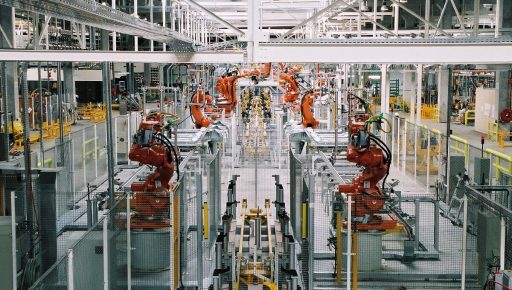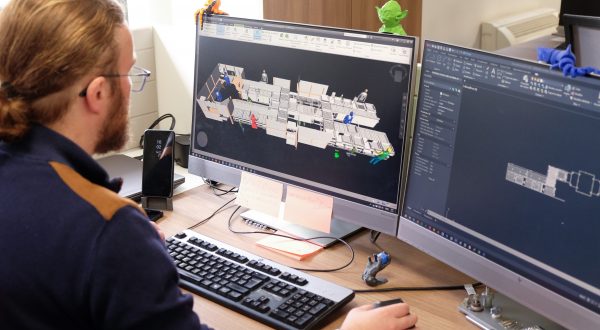A Franco-German alliance to drive future industry growth
Reading time: 3 min

© VINCI Energies
To prevent a Google-like company from seizing the leadership position in industrial development, Paris and Berlin have laid the foundation for the French-German academy for the industry of the future.
France was not the first country in Europe to support the forward-looking industry movement, but it seems determined to make up for lost time. To that end, in partnership with Germany, it has laid the foundations for the Franco-German Academy for the Industry of the Future by bringing closer together its “Alliance for the Industry of the Future”, created in July 2015 with its German counterpart, the “Industry 4.0” platform.
Digital technology is at the heart of the future of industry. Robotics, additive manufacturing (3D printing), and the automation of logistics processes are examples of this mixing of bits and atoms that represents as much a threat to Germany and France’s leadership as an opportunity for both countries to leverage the digital economy to put a halt to industrial decline.
Both countries have understood that they must join forces to prevent a Google-like industrial giant from taking the lion’s share. The establishment of the academy was announced at the digital technology conference held in Paris in October 2015. The academy is affiliated with two leading university centres, Technische Universität München (TUM) in Germany and Institut Mines-Telecom in France.
Research and training are at the core of the academy’s mission
Research and training – which are key to providing businesses with future-proof skills – are at the core of the academy’s mission. As a priority, the academy is striving to implement a standardisation system that uses open standards – an absolute requirement to ensure that all machines can “speak” to one another.
To that end, the academy will put to use the extensive feedback provided by small and medium-sized businesses and mid-market companies on the solutions they are able to apply and refine in the academy’s network of testing centres. A standardisation action plan, particularly in the fields of robotics and additive manufacturing, is set for release in late 2016.
Developing partnerships with industry
Both in France and in Germany, players are developing partnerships with industry as platforms to launch innovative projects in various areas, including automation, agile manufacturing, big data, the internet of things, and security as well as logistics and transport, organisation and management, man-robot cooperation, and smart agents.
What appears to be certain in Germany, where research and industry are long-standing partners, is that businesses will embrace digital technology if the Industry 4.0 and the Alliance for the Industry of the Future projects can demonstrate how “going digital” benefits industry.
Partners in France share the same view, as is clear from a map showing the deployment of industries of the future across the country.
By late 2016, both countries will present the first examples of applications launched under the guidance of the academy.
11/10/2016


